OCCIDENTAL MINDORO, July 16, 2021 – The Department of Agriculture – Special Area for Agricultural Development (DA-SAAD) Program conducted a 4-day cassava production and marketing training for 60 indigenous people (IP) farmers in Magsaysay.
The participants, who are members of the Calachuchi Indigenous Farmers Association (CIFA) and Samahan ng Katutubong Ratagnon Lupaing Ninuno (SAKARALUNI), attended the training from July 13 to 16 in Brgy. Poblacion.
The Cultural Management on Cassava Production and Marketing training was led by DA Region 4B Corn/Cassava Program representative Mr. Edmar Mendoza, who discussed land preparation, proper planting and harvesting, and various uses of cassava.
“Kapag naintindihan at ginamit [ng mga katutubo] ang mga kaalaman at mga diskarte na ibinahagi natin sa kanila, makakaambag ito upang mas ma-maximize ang kanilang ani at mapataas ang kanilang kita,” Mr. Mendoza said.
[When (the IPs) understood and applied the knowledge and strategies we shared, these will help them maximize their yield and increase their income.]Mr. Mendoza suggested conducting a soil test to determine what the SAAD can do to further assist the beneficiaries in their land preparation to possibly increase their yield.
The test will determine soil’s chemical composition and characteristics, making it possible to learn the suitable crops in an area and the preparations needed to have a bountiful harvest.
Mr. Jay-R A. Cuaresma of San Miguel Corporation Integrated Farm Specialist shared the correct way to prepare the cassava for marketing.
According to Mr. Cuaresma, the country has a high demand for cassava because it is a primary material for making a variety of products such as alcoholic beverages, animal feeds, plywood, and medicine.
“Nagi-import pa ang San Miguel Corporation mula sa ibang bansa gaya ng Thailand para lang matugunan ang malaking pangangailangan sa balinghoy. Kung makakapagprodyus ang ating mga magsasaka ng mas maraming balinghoy, hindi na natin kakailanganin pang bumili sa ibang bansa at matutulungan pa natin ang mga lokal na magsasaka,” said Mr. Cuaresma.
[San Miguel Corporation imports cassava from other countries such as Thailand to meet the large demand for cassava. If our local farmers can produce more, we will not need to import from other countries while helping our farmers to earn more.]Magsaysay Officer-in-Charge Municipal Agriculturist Richard V. Ochavez and SAAD Staff assisted on the activity.
About the associations
CIFA cultivates an estimated area of 20 hectares (ha) for cassava farming. The group became a SAAD beneficiary in 2020.
They received five sets of plow and harrow, 27 sets of farm tools (shovel, hoe, rake, piko, spading fork, sprinkler, and wheelbarrow), five caraheifer, a grass cutter, ¼ truckload of Lakan 1 Golden Yellow variety of cassava cuttings, and a cassava granulator. All inputs cost Php 2,704,900.
On the other hand, SAKARALUNI cultivates an area of 15.75ha for cassava farming and was registered in the Department of Labor and Employment (DOLE) in 2016.
The association became a SAAD beneficiary in 2020 and received Php 1,034,437 worth of 5,400 Lakan 1 Golden Yellow variety of cassava cuttings, five sets of plow and harrow, 28 sets of farm tools (shovel, hoe, rake, piko, spading fork, sprinkler, and wheelbarrow), two hermetic storage cocoons with 5 metric tons capacity, four collapsible dryers, five caraheifer, and a grass cutter.
SAAD continues to execute training and workshops from production, value-adding, marketing, and leadership to continuously encourage small-scale farmers to expand production and engage them into establishing enterprises. ###
Writer: Dianne Francis A. Sy, SAAD Information Officer I
Source: Vilmar Robes, SAAD Area Coordinator – Magsaysay

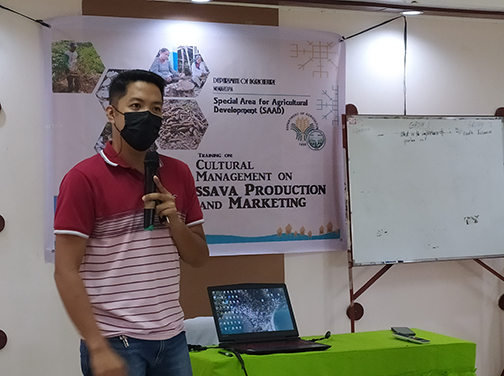
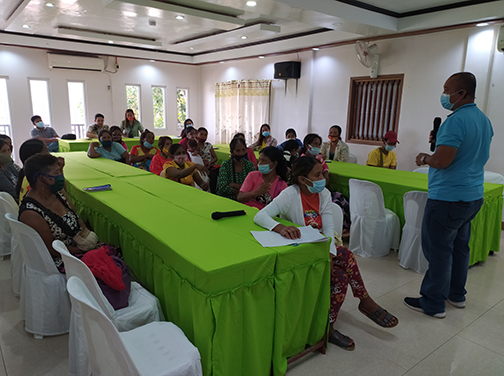
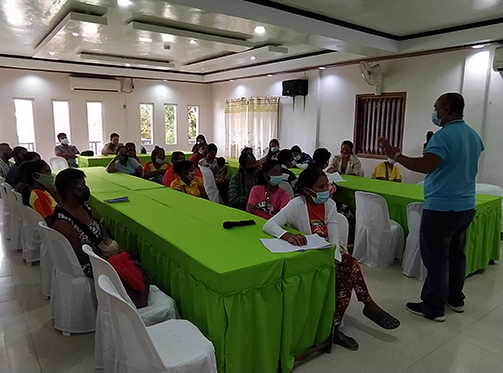
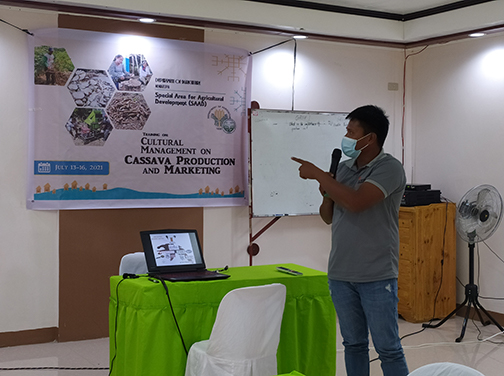
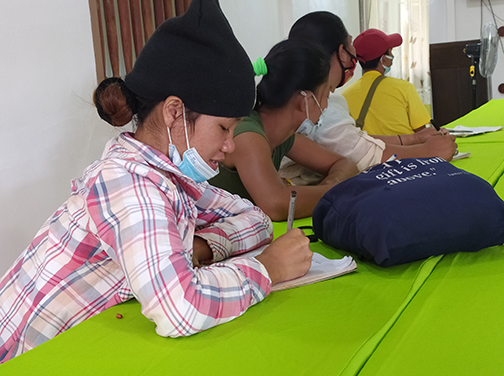
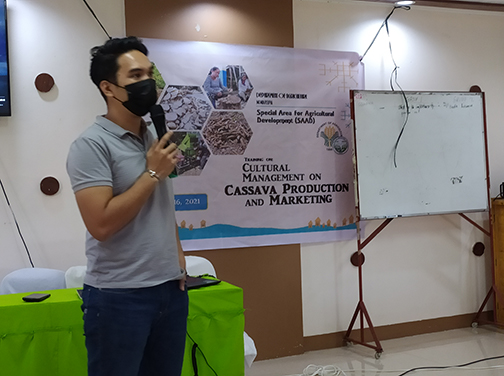
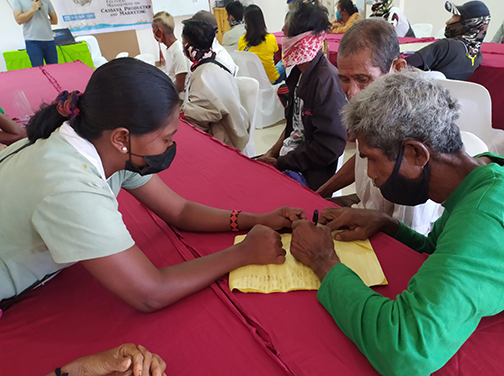
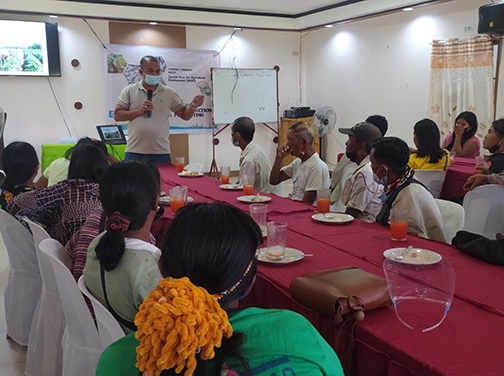
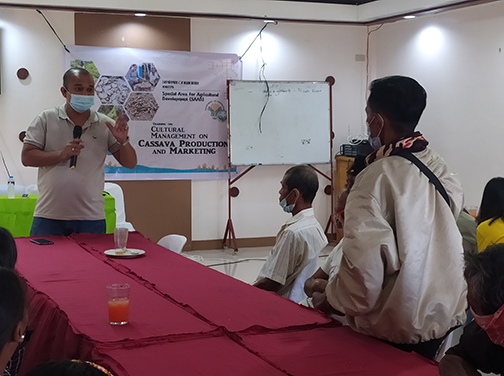
Comments (0)